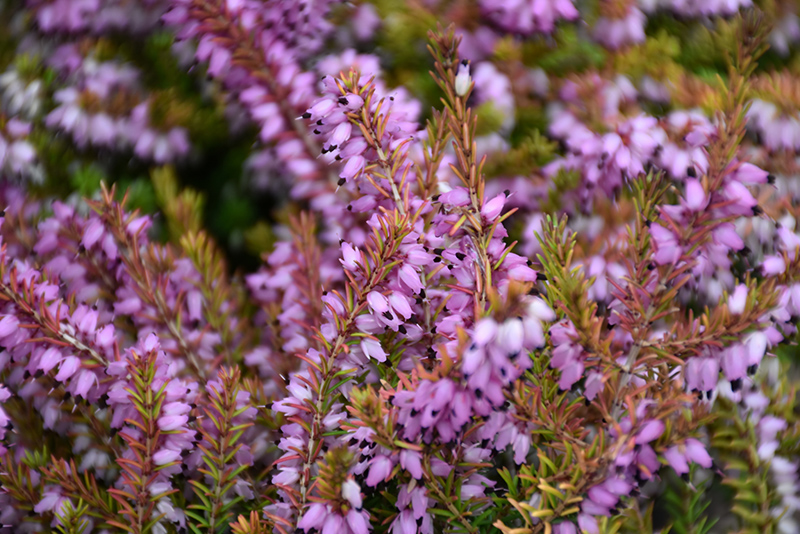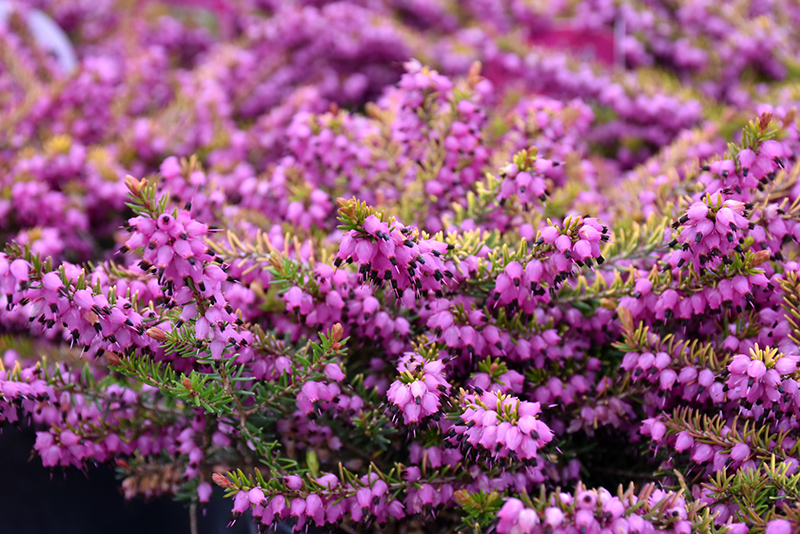>> Home
Eva Gold Heath
Erica x darleyensis 'Eva Gold'
Plant Height: 18 inches
Flower Height: 24 inches
Spread: 3 feet
Sunlight:
![]()
Hardiness Zone: 5b
Other Names: Darley Heath
Description:
One of the toughest and more tolerant of heaths to a variety of soils and moisture conditions; features bright pink flowers along upright spikes in late winter and early spring over bronze to gold foliage; makes a great groundcover
Ornamental Features
Eva Gold Heath is clothed in stunning spikes of pink bell-shaped flowers rising above the foliage from late winter to mid spring. It has attractive coppery-bronze-variegated dark green foliage with hints of gold. The tiny needles are highly ornamental and remain dark green throughout the winter.
Landscape Attributes
Eva Gold Heath is a multi-stemmed evergreen shrub with a mounded form. It lends an extremely fine and delicate texture to the landscape composition which should be used to full effect.
This is a relatively low maintenance shrub, and should only be pruned after flowering to avoid removing any of the current season's flowers. It is a good choice for attracting bees to your yard. It has no significant negative characteristics.
Eva Gold Heath is recommended for the following landscape applications;
- Mass Planting
- General Garden Use
- Groundcover
- Naturalizing And Woodland Gardens
Planting & Growing
Eva Gold Heath will grow to be about 18 inches tall at maturity extending to 24 inches tall with the flowers, with a spread of 3 feet. It tends to fill out right to the ground and therefore doesn't necessarily require facer plants in front. It grows at a medium rate, and under ideal conditions can be expected to live for approximately 20 years.
This shrub should only be grown in full sunlight. It does best in average to evenly moist conditions, but will not tolerate standing water. It is not particular as to soil type, but has a definite preference for acidic soils, and is subject to chlorosis (yellowing) of the foliage in alkaline soils. It is somewhat tolerant of urban pollution. Consider applying a thick mulch around the root zone in winter to protect it in exposed locations or colder microclimates. This particular variety is an interspecific hybrid.

